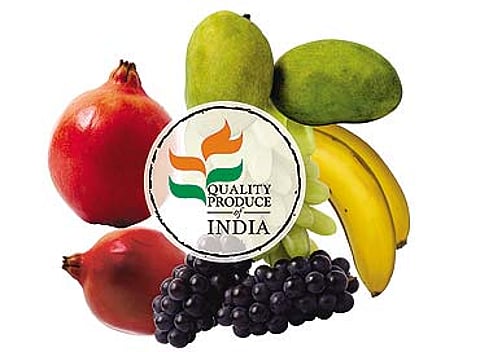Inedible India
Rejected batches in the West yield a tougher regime. But locally?
- America's fda rejected 1,700 Indian food consignments worth $1.2 billion between Jul '06 and Jun '07
- India is among 10 nations the European Commission lists to have received notifications for substandard products
- Contaminants include salmonella, unsafe colour additives, banned antibiotics and heavy metals
- Government has now begun tracking farm produce digitally to allow quicker damage control
***

Putting on a stern face, the EIC says erring producers who regularly violate quality norms will have their export approvals repealed. "We have suspended the production and export of around 10 such exporters in the last one year," says Sareen. "But often rejections abroad are unjustified because in some instances the limits for certain contaminants are not intimated officially. Or, the contaminants are simply absent as seen from checks on some rejected consignments."
But then these are exports. What about the safety of things being consumed locally? The government is slated to launch a new federal food safety authority this month under the Food Safety and Standards Act to replace the Prevention of Food Adulteration Act. "Being an integrated food law, FSSA will be easier to enforce," claims a senior official at the Union ministry of health and family welfare. "Coordination between various responsible agencies earlier was problematic." Food imports shall also be subject to this act.
The new rules leave the industry cold, though. "You can't micro-manage this issue," says a spokesperson of FICCI's food wing. "Food safety needs a comprehensive overhaul of laws that govern food right from the farm to the fork, not just those politically expedient. Why penalise only the food processor? What can he do if he gets impure produce from the farmer or contaminated water from the municipal authority? Why should the latter two go scot-free?"
Then there is the inherent problem of a food processing market dominated by small-scale units. "Food processors have no incentive to make products of higher quality," says the FICCI spokesperson. "The cost of complying with higher quality does not give him returns; so, he opts for products that meet minimum standards. Even Indian consumers lack the confidence in our regulatory mechanism to be willing to pay more for better quality."
Dave sounds another alarm bell—the entry of international retail players in India. This will make it imperative to improve the quality of local produce. "They (international players) have their standards which will have to be met if they're to buy Indian produce," says Dave. "If not, they'll simply sell better quality products imported from elsewhere. What happens to our farmers and producers then? The Indian consumer has the money to afford imported and, in this case, better goods. That is why, over 40 years, the value of our fresh produce export has touched only about Rs 2,000 crore but the value of fresh produce imports into India has shot up beyond Rs 4,000 crore in just four years."
Comprehensive domestic food safety, experts admit, is a long haul since over 95 per cent of the food market comprises unprocessed food. It involves training farmers/manufacturers across the country about good agricultural and manufacturing practices and installing better testing facilities to deal with the constantly evolving threat of food contaminants. As Dave puts it, "It is not just an export issue. Don't our domestic consumers deserve the same quality we think is fit for exports?" Good question.
Tags